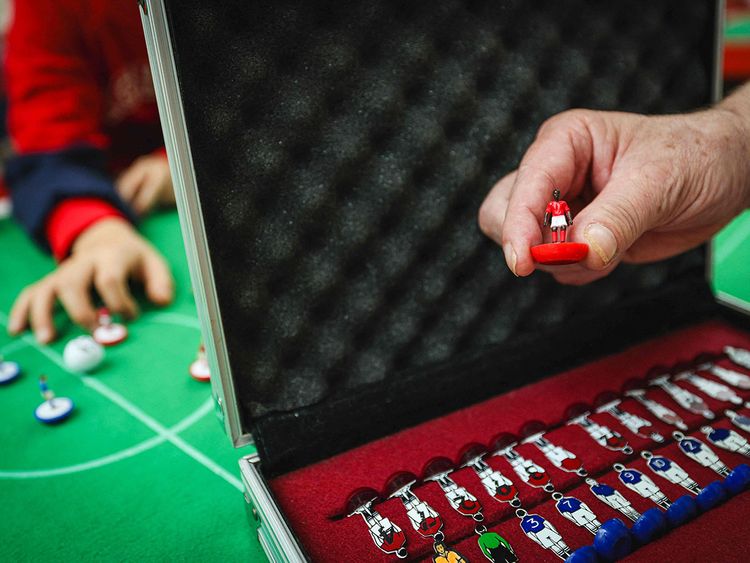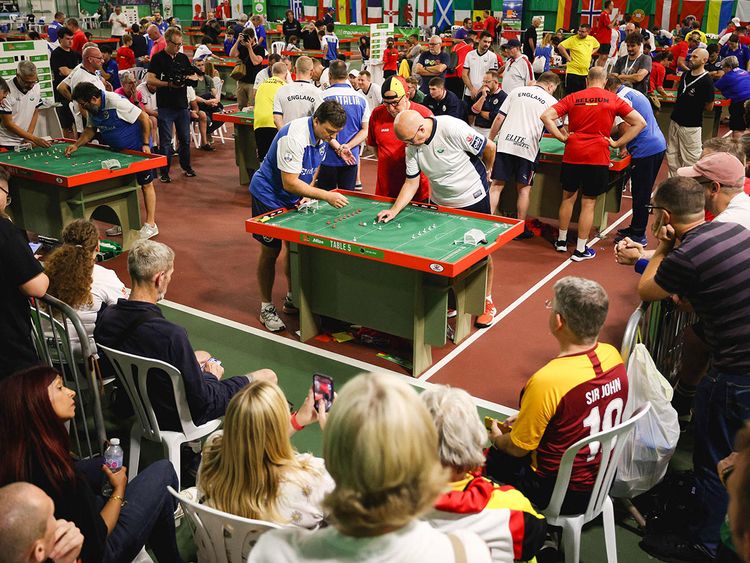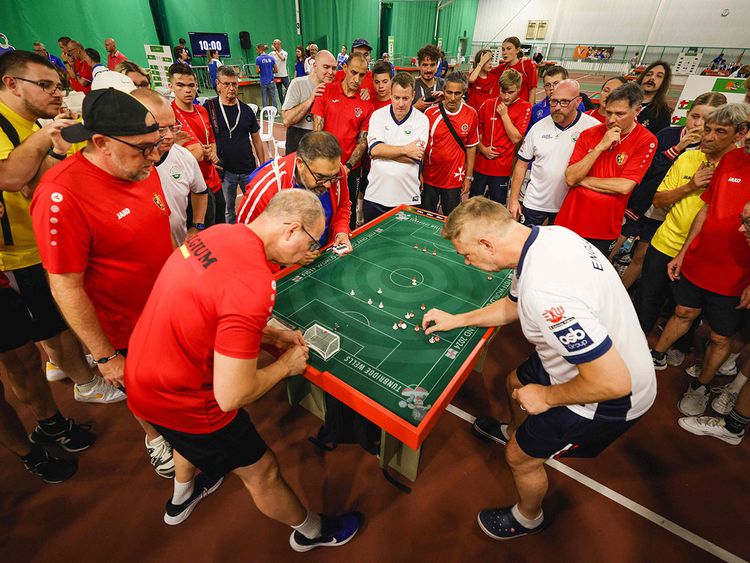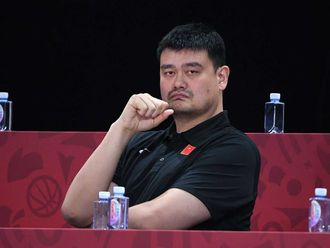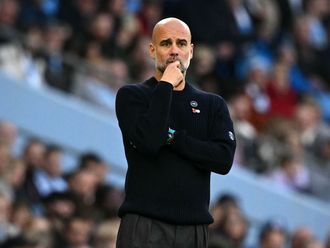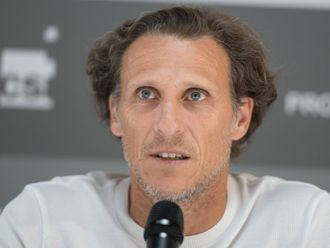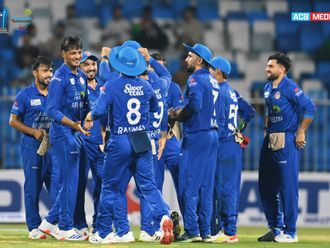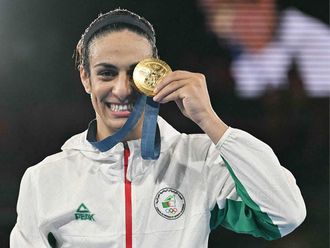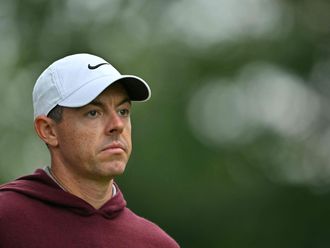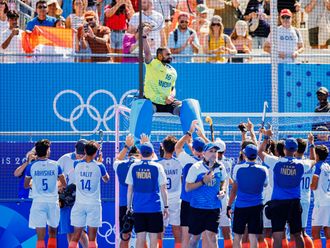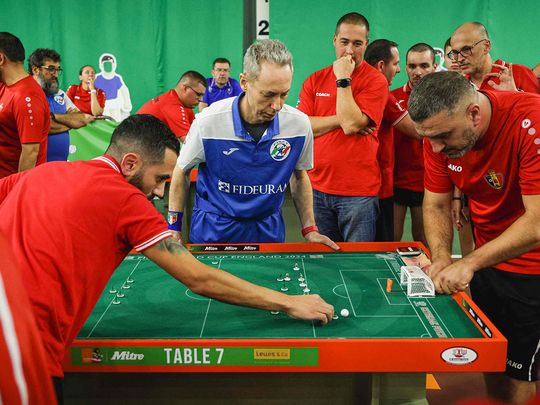
Tunbridge Wells: With a quivering finger, England Subbuteo veteran Rudi Peterschinigg conceded the free-kick that sent his country's World Cup quarter-final into extra-time before smashing his plastic goalkeeper on the floor in frustration.
In the genteel southern English town of Tunbridge Wells, 300 elite players have gathered to play the game they love.
"I won't say this is the best weekend I've ever had in my life, but it's certainly in the top two," said Hughie Best, 58, who flew in from Perth, Australia, to compete and commentate at the event.
Tunbridge Wells is the "spiritual home" of Subbuteo which was invented here in 1946 before being copied around the world.
The game of skill and strategy fell out of fashion with the advent of computer games, but is enjoying a renaissance among nostalgists and also the younger generation, with this year's tournament the largest ever.
Around 5,000 people visited the three-day tournament's various events, according to Stewart Grant, press officer with organiser The English Subbuteo Association, as the town embraced the unusual honour.
"Everybody you speak to, they say it's the home. It's a pilgrimage for some people," he added.
The game's collectability has always been part of its allure, with many people accumulating the finely-painted teams, stands, supporters, floodlights, replica trophies and scoreboards without actually playing.
"It's quite cool, you can control the ball and the amount of power with your own hands," said spectator and part-time player Harry Brown, 12.
"I like how you can paint the players and change the teams," he added.
Lockdown boost
England youth player Alex Scott told AFP that he didn't play video games because Subbuteo is "a lot more fun".
"Its the competitiveness and going around different places meeting new people," he added.
His father, Justin, runs a club in Wolverhampton and was one of many at the event who said they had noticed an increase in members.
"A lot of people went into their loft and found their Subbuteo" during Covid lockdowns, and "then looked if there was a club when everything reopened," he explained.
The aim of the game is the same as football, to score more goals then your opponent.
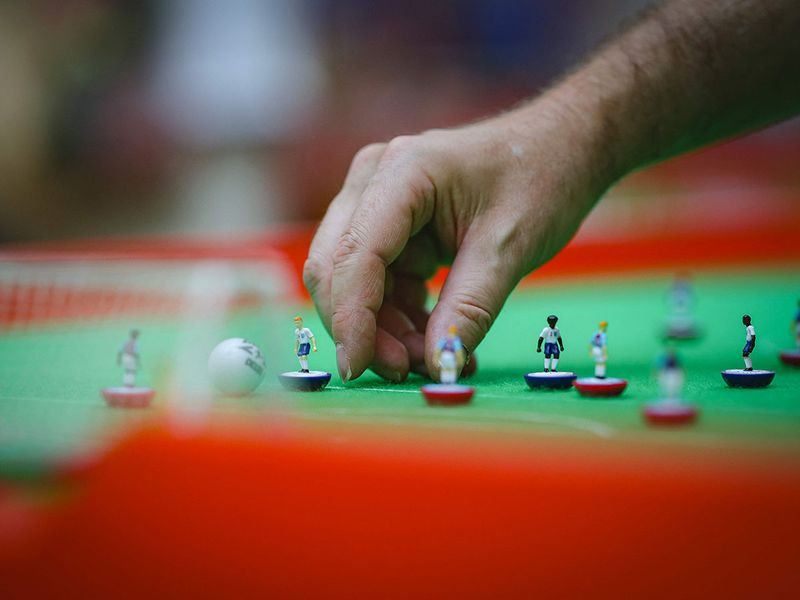
This is achieved by flicking the tiny players, who either have a flat or semi-circular base, into the ball and manoeuvering it into goalscoring positions.
The team event knockouts (U12s, U16s, U20s, veterans, women and open) at the climax of the tournament took place around the same time as Sunday's Premier League match between Manchester City and Arsenal.
But all eyes in the Tunbridge Wells Sports centre were on the 50 bright green 90 x 50 centimetre cloth tables.
Before the games, the combatants took their star players out of their ornate wooden boxes, lubricated their bases and set them up in precise formations. After a 10-second countdown, the flick-off began 30 minutes of action.
'Bloodied hero'
The team games consist of four simultaneous individual matches, with huge roars punctuating the general buzz of the spectators, indicating where goals were being scored.
Tensions came close to spilling over on occasion, including when England players took off on a victory dash after scoring a goal against the mighty Italians, only to have it controversially ruled out.
But that disappointment was forgotten when "super" Bob Varney scored the golden-goal winner in England's veteran semi-final against Belgium, sparking wild celebrations as he was mobbed by dozens of teammates and spectators.
"Just remember, it's a children's board game, recommended age group 7-11. It says it on the box," Varney had joked to an AFP photographer, moments before his goal.
The veteran, co-founder of Drops Cycling - the UK's most successful women's cycling team- was playing with a plaster on his finger after sustaining a nasty injury while making a save, later asking lightheartedly that he be described as the "bloodied hero".
Varney's team lost in the final to the Italians, who also won the main open event after scoring the winning goal three seconds from the end of their final with Belgium, much to the delight of the team's wives, families and coaches gathered on the sidelines.
"I don't know what to say. It was lost, it's incredible," World Cup winner Matteo Ciccarelli, 25, told AFP, with sweat pouring from his brow after winning his final match 4-1.


